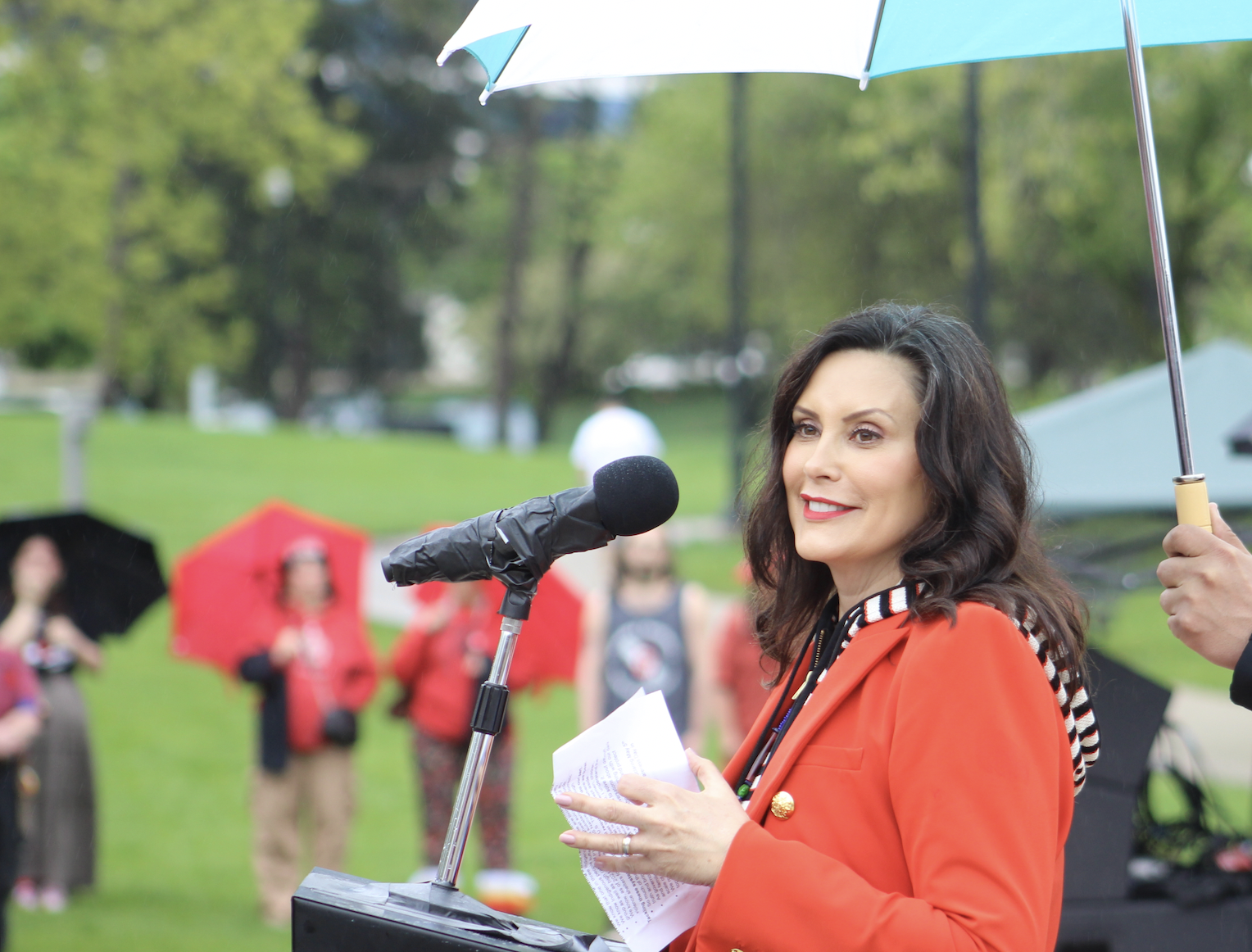
- Details
- By Neely Bardwell
Native Vote 2024. While Republicans kicked off their convention in Milwaukee, Wisconsin on Monday, Donald Trump’s presidential campaign and the Republican National Committee filed a lawsuit in Michigan against Michigan’s Governor Gretchen Whitmer and Secretary of State Jocelyn Benson over ballot box placement.
The lawsuit, filed in federal court on July 15, alleges Whitmer overstepped her authority when she issued a Dec. 18 directive allowing several state and federal agencies to be used as voter registration agencies, including the Veterans Affairs (VA) agency and Michigan State Housing Development Authority. “Under Michigan law, the authority to make such designations is held solely by the Legislature,” the filing said.
In 2016, Michigan went red for Trump, but then flipped back blue in the 2020 election. In the 2016 election, Trump defeated Democrat Hillary Clinton by 10,674 votes. President Joe Biden’s victory in 2020 was more decisive; He garnered 154,188 more votes than Trump.
Michigan is now considered a key battleground state for the election this November. Recent polls show Biden and Trump in a virtual tie when the margin of error is considered.
The Republican National Committee (RNC) claims this move by Whitmer undermines the integrity of future elections, something the Republicans already believe is an issue.
"The RNC and its members are concerned that Defendants’ failure to comply with Michigan statutes governing VRA designation undermines the integrity of elections by increasing the opportunity for individuals to register to vote even though they are ineligible to do so, and by sowing confusion regarding whether the agencies purporting to offer assistance in registering voters are doing so in accordance with applicable law," says the suit, which was first reported by MLive.com.
Last month, in a statement detailing her executive directives, Whitmer said she was acting under Michigan’s constitution when she designated additional ballot locations, specifically Article 5 which “vests the executive power of the State of Michigan in the governor.”
House Elections Committee Chair state Rep. Penelope Tsenoglou (D-East Lansing) called the lawsuit “politically driven,” and “a blatant attempt to disenfranchise Michigan voters ahead of the upcoming election,” in a statement.
“The governor and the secretary of state’s actions to designate additional voter registration agencies are consistent with state and federal laws, and so I am hopeful that this attempt at voter suppression will not stand,” Rep Tsenoglou added. “Free, fair and accessible elections are the cornerstone of our republic, which is why making voter registration easier for all — most certainly including our veterans — is vital to our democracy. I sincerely hope that every eligible Michigander will perform their civic duty by registering to vote and casting their ballot in the upcoming elections.”
More Stories Like This
Native News Weekly (August 25, 2024): D.C. BriefsScope Narrowed, Report Withheld: Questions Mount Over Michigan Boarding School Study
Zuni Youth Enrichment Project Announces Family Engagement Night and Spring Break Youth Programming
Next on Native Bidaské: Leonard Peltier Reflects on His First Year After Prison
Deb Haaland Rolls Out Affordability Agenda in Albuquerque
Help us defend tribal sovereignty.
At Native News Online, our mission is rooted in telling the stories that strengthen sovereignty and uplift Indigenous voices — not just at year’s end, but every single day.
Because of your generosity last year, we were able to keep our reporters on the ground in tribal communities, at national gatherings and in the halls of Congress — covering the issues that matter most to Indian Country: sovereignty, culture, education, health and economic opportunity.
That support sustained us through a tough year in 2025. Now, as we look to the year ahead, we need your help right now to ensure warrior journalism remains strong — reporting that defends tribal sovereignty, amplifies Native truth, and holds power accountable.
 The stakes couldn't be higher. Your support keeps Native voices heard, Native stories told and Native sovereignty defended.
The stakes couldn't be higher. Your support keeps Native voices heard, Native stories told and Native sovereignty defended.
Stand with Warrior Journalism today.
Levi Rickert (Potawatomi), Editor & Publisher


